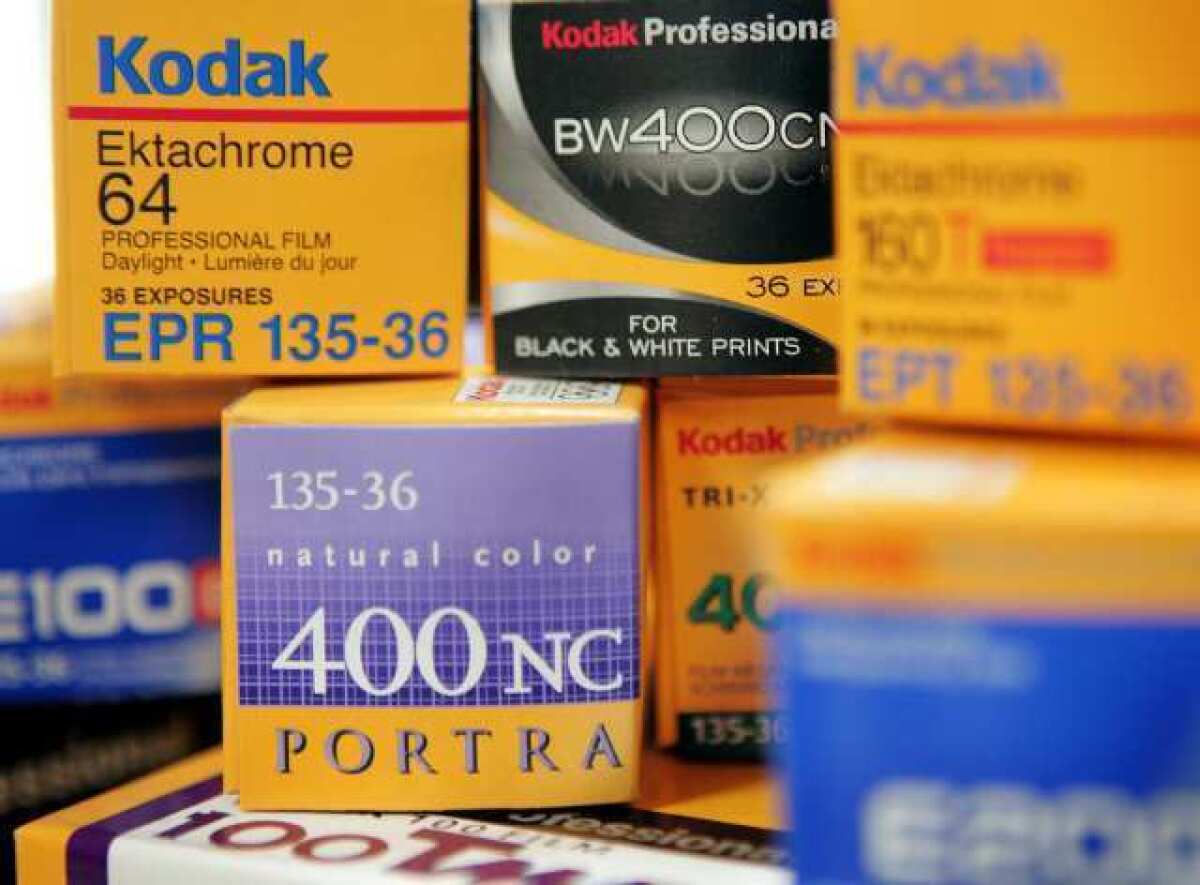Bankrupt Kodak to sell film divisions

- Share via
Eastman Kodak– once one of the world’s best-known brands, now bankrupt and struggling to compete – is putting its film divisions up for sale.
Remember those little rolls in the yellow canisters? Those photo machines at Six Flags laden with evidence of your roller coaster-induced screams? Kodak doesn’t want them anymore.
The Rochester, N.Y.-based company is offering its personalized imaging and document imaging businesses, which include “traditional photographic paper and still camera film products” as well as 105,000 photo-printing kiosks and the document-scanning branch.
The sale will also loop in Kodak’s event imaging venture, which provides souvenir photos at theme parks and other venues. Kodak did not disclose how much it hopes to make off the sale.
But if the company has its way, the deal will go through in the first half of 2013.
The sale, along with “continued cost-reduction initiatives, curtailment of its legacy liabilities, and the monetization of the company’s digital imaging patent portfolio, will be significant milestones toward completing the company’s reorganization and emergence from Chapter 11,” the company said in a statement.
Kodak filed for bankruptcy in January, battered by liquidity constraints and rivals who were much further ahead in the digital photography race. Now the company is wrapped up in the auctioning off more than 1,000 of its patents and crafting a new strategy focused on products such as printers.
In April, Kodak sold its Kodak Gallery photo-sharing website to Shutterfly Inc. – which the company then shut down.
“We are reshaping Kodak,” Chief Executive Antonio Perez said in a statement.
ALSO:
Picture this: Shutterfly snaps up Kodak Gallery
Kodak files for long-expected Chapter 11 bankruptcy
Shutterfly closes Kodak Gallery, but your photos are safe
Follow Tiffany Hsu on Twitter and Google+
More to Read
Inside the business of entertainment
The Wide Shot brings you news, analysis and insights on everything from streaming wars to production — and what it all means for the future.
You may occasionally receive promotional content from the Los Angeles Times.











